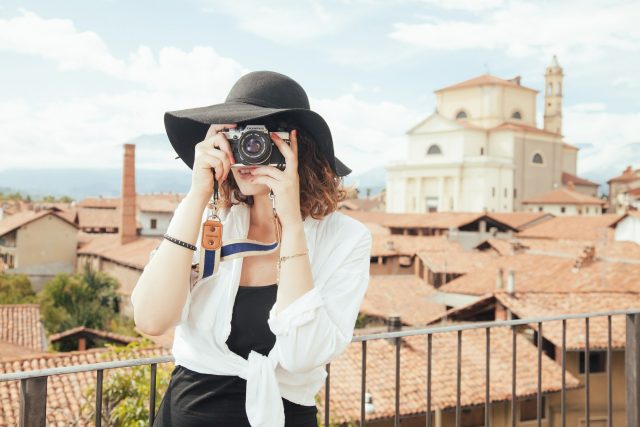Pictures convey messages better than words because it shows some things that no language can express. By definition, photography is an art that allows people to capture scenes and turn them into still images that immortalize them.
However, some photographers find it challenging to find their way in this field, especially when it comes to enhancing the quality of the pictures they produce.
If you’re a novice photographer who is looking to become better in the craft, this article can help you learn the six most practical ways to develop your photography skills and come up with images worthy of being called “art.”
1. Learn to appreciate art
Art appreciation is crucial for every photographer. When you have a keen eye for all things beautiful and worth capturing on canvas, you’ll also learn to become an admirer and a student of the world of art.
To do this, visit museums and study different artists’ work. Don’t forget to bring a pen and paper and list down the names of artworks you notice and why they caught your eye. Be sure to get into details about the reason you like them.
Even better, if you list down all the artworks you see, then write which ones you like and dislike and why.
You can learn many things by observing the artists’ work. The best part is that most museums offer free admission. It can’t get more practical than that.
2. Study how to use your tools
Some enthusiasts learned to love photography because of the pretty pictures they instantly get using their smartphones. But while many professional photographers turn to such devices when the need arises, it’s still important to learn the correct use of a DSLR camera and other tools you may use.
DSLR – which stands for digital single-lens reflex – are cameras that use mechanisms and optics of single-lens reflex cameras with digital imaging sensors. But besides knowing what they are, you should also learn how to use them to become a better photographer.
How? By reading the manual.
The manual may not help you become better at taking pictures per se. However, reading and understanding it well will give you some technical know-how that you can use to improve the quality of your photos.
This way, you’ll know how to customize your camera controls to get your expected output. It will also let you react faster whenever you spot a photo opportunity and avoid losing the chance to capture the scene.
Besides your camera, you also need to learn how to use photo editing software so you can perform finishing touches on your photos. You can read or watch many tutorials about this, but you also have the choice to enroll in short courses to gain more in-depth knowledge about software like Adobe Photoshop.
3. Practice every day.
Practice always pays off, especially when done regularly. This is why you must also take the time to use your gear daily so you can get more comfortable using it.
This is not to say that you’ll need to capture award-winning shots every day of the week. It merely suggests you must snap pictures with your camera every day so you can use it instinctively.
You can develop your reflexes in adjusting the ISO or aperture on your camera while keeping your eye on the viewfinder. You will also learn which direction to turn the camera’s dial to for a brighter or darker shot and be able to capture spontaneous moments.
4. Begin a photography project
There’s no better way to learn how to do things than by trying. With photography, this can be done by starting a project.
Decide on a goal and set the parameters where you can work within. The project should force you to make the most of your existing gear.
For example, you can do the classic 365-photo challenge. As you probably already guessed, this entails taking one picture for every day of the year.
You can also restrict the use of lenses or focal zoom length. Or perhaps you can choose a theme (e.g., a specific emotion, color, camera effect, or location).
The key is to pick something that will let you sharpen your eye and, ultimately, your photography skills.
5. Focus on what you can capture on camera
Many times, photographers walk away from a once-in-a-lifetime photo opportunity because of limitations in their existing gear.
But even though you feel like your camera has a slow shooting speed or sluggish autofocus or your lens isn’t wide or long enough for the shot, you must not focus on the barriers that prevent you from taking a great photo. Instead, concentrate on what you can capture.
Rather than thinking about what you lack in gear in taking a shot you initially wanted, look for ways to capture a different-but-equally awesome image.
6. Ask other people’s opinions of your output
Writers have editors to check their work with a fresh eye. Like them, photographers also need to learn other people’s opinions about their output to improve.
Try reaching out to other photographers and asking them to check your work. Enter review groups where there are photographers who have more experience and skills than you. This isn’t to compare yourself to them but rather to get valuable insights into improving your photography skills.
Diversity is good, too. The members don’t need to be in the same photography niche as you but make sure you know a thing or two about what they do.
This can be done through group chats on social media or even Facebook groups. And remember to keep the member count to a maximum of ten.
Don’t forget; you shouldn’t just be open to criticism. You must also be grateful for the criticism. While other people may not understand how you think and the vision you’ve set for your photography, they can at least offer a different perspective on how to do it.
Boost your photography skills
There are plenty of ways to improve in a professional like photography, but finding the most practical course to take will help you get there sooner. The tips listed in this article should serve as a good start.
AUTHOR BIO
Jerrin Samuel is the Executive Director at Regional Educational Institute (REI) in Abu Dhabi. Since 1995, REI has been at the forefront of education by delivering quality corporate training courses in the UAE, helping many businesses and organizations achieve greater productivity and higher customer satisfaction levels.













